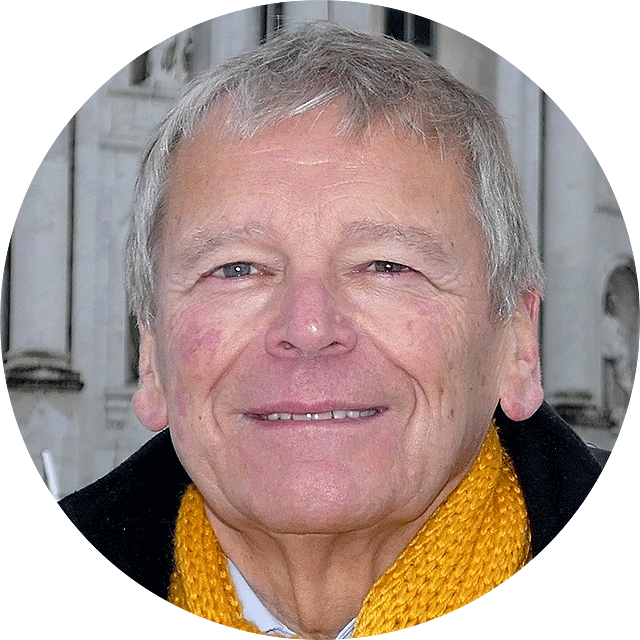Prof. Dr. Helmut Mayer

Prof. Dr. Helmut Mayer
Ehemaliger Leiter im Ruhestand
Werthmannstrasse 10
79085 Freiburg
| helmut.mayer@meteo.uni-freiburg.de | |
| Tel | +49 761 203 3590 |
| ORCiD | 0000-0003-0591-8876 |
Biographie
Helmut Mayer studierte Meteorologie mit den Nebenfächern Geographie und Geophysik an der Ludwig-Maximilians-Universität München, wo er 1971 mit dem Diplom in Meteorologie abschloss. Zwischen 1971 und 1974 wurde er an der Fakultät für Physik der Universität Karlsruhe mit einer Dissertation zum Thema “Temperatur und Feuchte in der bodennahen Atmosphäre über Karlsruhe” promoviert. Zwischen 1979 und 1992 war er wissenschaftlicher Mitarbeiter am Lehrstuhl für Bioklimatologie und Angewandte Meteorologie der Ludwig-Maximilians-Universität München. Er habilitierte 1985 zu “Baumschwingungen und Sturmgefährdung des Waldes“ und wurde Privatdozent für das Fach "Forstliche Meteorologie und Klimatologie”. Von 1985 bis 1988 übernahm er die kommissarische Leitung des Lehrstuhls für Bioklimatologie und Angewandte Meteorologie an der Ludwig- Maximilians-Universität München. 1992 wurde er als C4-Professor an die Albert-Ludwigs-Universität Freiburg berufen, wo er bis 2015 Leiter der Professur für Meteorologie und Klimatologie (bis 2012: Meteorologisches Institut) war. Von 1997 bis 1999 wurde er als Dekan der Geowissenschaftlichen Fakultät gewählt. Helmut Mayer war Vorsitzender der Deutschen Meteorologischen Gesellschaft sowie Editor der Zeitschriften „International Journal of Biometeorology“ und “Climate Research”.
→ Detaillierter Lebenslauf
Preise und Auszeichnungen
- 2019 - Reinhard-Süring-Plakette der Deutschen Meteorologischen Gesellschaft (DMG)
Herausgeberschaften
- Field Editor der Fachzeitschrift „Climate Research“ (bis Dez 2013)
- Field Editor der Fachzeitschrift „International Journal of Biometeorology“ (bis Dez 2014)
Ausgewählte Publikationen
Originalarbeiten in wissenschaftlichen Fachzeitschriften
- Lee H, Park S, Mayer H, 2025: Approach for the vertical wind speed profile implemented in the UTCI basics blocks UTCI applications at the urban pedestrian level. International Journal of Biometeorology, 69: 567-580.
- Lee H, Park S, Mayer H, 2023: Statistical Characteristics of Air Quality Index DAQx*-Specific Air Pollutants Differentiated by Types of Air Quality Monitoring Stations: A Case Study of Seoul, Republic of Korea. Sustainability, 15: 8599.
- Lee H, Lee J, Oh S, Park S, Mayer H, 2023: Air pollution assessment in Seoul, South Korea, using an updated daily air quality index. Atmospheric Pollution Research, 14: 101728.
- Lee H, Oertel A, Mayer H, 2022: Enhanced human heat exposure in summer in a Central European courtyard subsequently roofed with transparent ETFE foil cushions. Urban Climate, 44: 101210.
- Lee H, Mayer H, 2021: Solar elevation impact on the heat stress mitigation of pedestrians on tree-lined sidewalks of E-W street canyons – Analysis under Central European heat wave conditions. Urban Forestry & Urban Greening, 58: 126905.
- Lee H, Mayer H, Kuttler W, 2020: Impact of the spacing between tree crowns on the mitigation of daytime heat stress for pedestrians inside E-W urban street canyons under Central European conditions. Urban Forestry & Urban Greening, 48: 126558.
- Lee H, Mayer H, Kuttler W, 2019: To what extent does the air flow initialisation of the ENVI-met model affect human heat stress simulated in a common street canyon? International Journal of Biometeorology; 63: 73-81.
- Lee H, Mayer H, 2018: Maximum extent of human heat stress reduction on building areas due to urban greening. Urban Forestry and Urban Greening, 32: 154–167.
- Lee H, Mayer H, 2018: Thermal comfort of pedestrians in an urban street canyon is affected by increasing albedo of building walls. International Journal of Biometeorology. 62:1199–1209.
- Chen L, Yu B, Yang F, Mayer H, 2016: Intra-urban differences of mean radiant temperature in different urban settings in Shanghai and implications for heat stress under heat waves: A GIS-based approach. Energy and Buildings, 130: 829-842.
- Lee H, Mayer H, 2016: Validation of the mean radiant temperature simulated by the RayMan software in urban environments. International Journal of Biometeorology, 60 (11), 1775–1785.
- Lee H, Mayer H, Chen, L, 2016: Contribution of trees and grasslands to the mitigation of human heat stress in a residential district of Freiburg, Southwest Germany. Landscape and Urban Planning; 148: 37-50.
- Lee H, Oertel A, Mayer H, Kapp R, Reuter U, Schmid M, Schulze-Dieckhoff R, Steinerstauch B, Lampen T, 2016: Evaluation method for the human-biometeorological quality of urban areas facing summer heat Gefahrenstoffe Reinhaltung der Luft, 2016; 7-8: 275-282.
Buchkapitel
- Lee H., Mayer H, 2019: Planerische Maßnahmen zur Reduzierung von lokalem Hitzestress für Menschen. In: Lozán, J L, Breckle S-W, Graßl H, Kuttler W, Matzarakis A (Hrsg.). "Warnsignal Klima: Die Städte". Hamburg, pp. 263-268.

